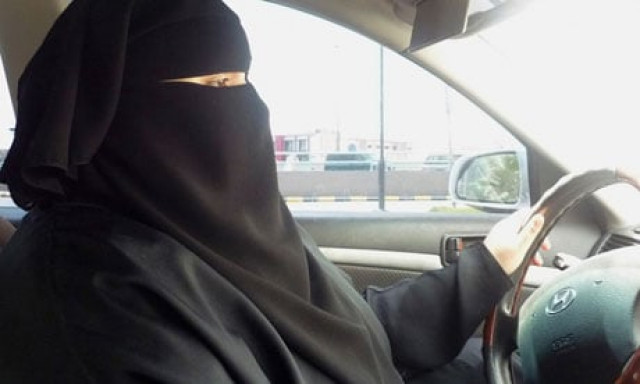Harassment culture plagues driving test centres
Root cause of problem lies in society’s preconceived, sexist notion that all women were bad drivers

“There must be a lady behind the wheel in that car.” For the typical Pakistani driver maneuvering through bumpy roads and jam-packed avenues, the aforesaid adage is the default reaction to any untoward encounter, be it a wrongly parked car, a sluggish vehicle blocking the way, or an unavoidable fender bender. While such misogynistic attitudes generally work well at keeping women from taking the driving seat, even the few who dare to defy the odds are covertly driven away, courtesy, the underreported harassment culture plaguing driving test centers.
Even though discrimination against female drivers is a universal manifestation of sexism, with a plethora of jokes and memes existing in almost all cultures around the world, most developed nations have to some degree invested in improving women’s participation in the public sphere by enforcing strict anti-harassment laws.
In Pakistan however, sexist outlooks towards female drivers having seemingly seeped into state institutions like the Traffic Police, which despite claiming to be gender inclusive, have failed to curtail the display of sexually offensive gestures by male onlookers, who harass and intimidate female drivers during their maneuvering assessments thereby preventing them from passing the test and obtaining a license.
“Whenever a woman is taking a maneuvering assessment, male test takers who are waiting for their turn, gather around and start hooting and ogling at the female driver. As a result of the bullying, many women get confused and are unable to pass the tricky test,” revealed Madiha Qasim, a test taker.
Read Women police fight harassment
Madiha’s revelation was supported by records obtained by The Express Tribune, which revealed that more than 50 percent of the women taking a driving test under the supervision of the Traffic Police, failed the maneuvering assessment are were thus unable to obtain a license.
According to Dr Mehwish Zafar, a psychologist, such poor performance is a natural result of the harassment culture at driving test centers, which pressurizes women psychologically and negatively impacts their performance on the test.
“Harassment is a major source of stress. The trauma of harassment hampers the woman’s ability to focus on the driving test. It is well understood that when a person does not focus on what they are doing, their performance is poor,” explained Dr Mehwish, who further implored the government to actively deal with such cases, in order to improve women’s chances of passing the driving test and obtaining a license.
Shedding light on the broader culture of discrimination against female drivers, Amina Malik, a social activist and lawyer opined that the root cause of the problem lied in the society’s preconceived, sexist notion that all women were bad drivers. ”Therefore, when a woman is driving on the road, male drivers nearby will try to intimidate her through hand gestures or demeaning phrases.
Similarly, when a woman wants to obtain a license, she is harassed by onlookers during the test,” asserted Malik, who further alleged that as a result of such misogynistic attitudes towards female drivers, a large population of women above the age of 18 did not have a driver’s license.
Denying Malik’s speculation, Amara Athar, City Traffic Officer at the Lahore Traffic Police maintained that women were treated on a priority basis across driving test centers in Lahore. “100 to 150 women receive driving licenses everyday at our centers. While no separate center for women’s traffic licensing exists in the city, female officers are available at all centers, which are open 24/7,” claimed Amara.
Published in The Express Tribune, February 20th 2024.



















COMMENTS
Comments are moderated and generally will be posted if they are on-topic and not abusive.
For more information, please see our Comments FAQ